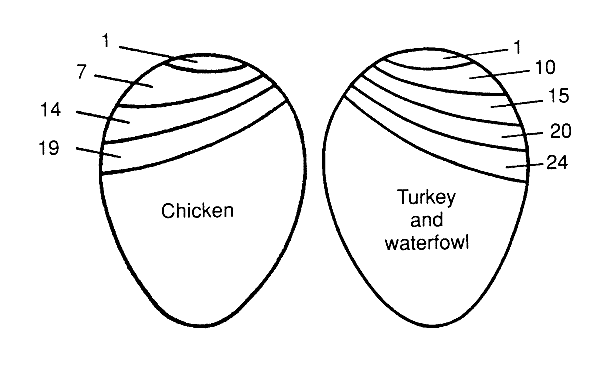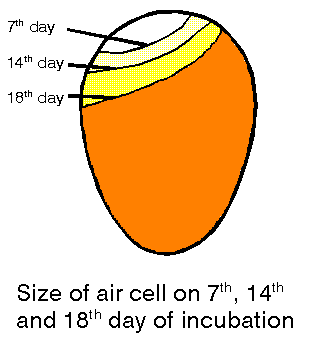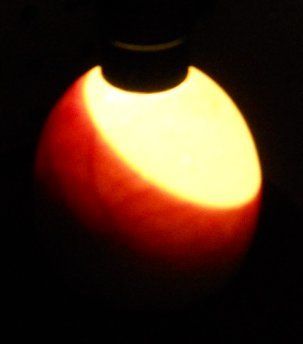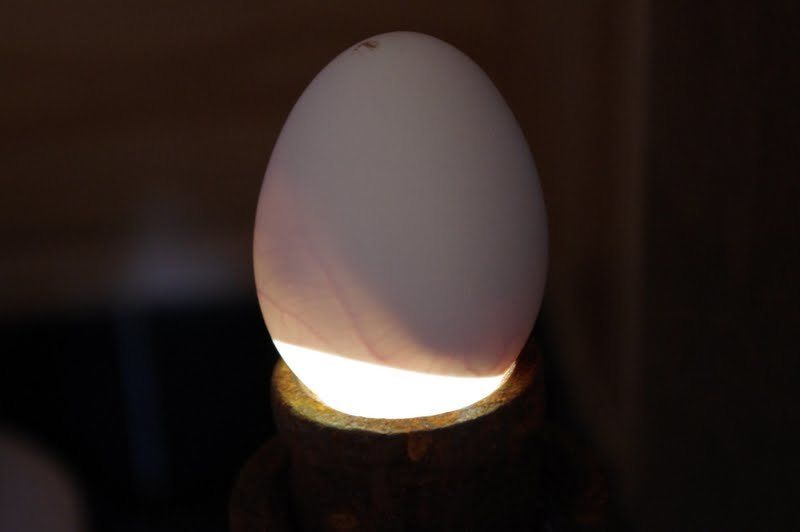The color diagram has a lot smaller air cell on day 18 compared to the pencil diagram. It may be the size of the 14th day, or even smaller, then the pencil diagram. There is not doubt about my eggs having too small of an air cell, what I am looking for is how big the air cell should normally be, and I am tempted to think the color diagram may be closer to accurate then the pencil. What do you think?
i think it's just a difference in the artists rendering dealing with the overall egg shape.. cause if you look at the colored one it's a lot more round of an egg ... either way if you have an air cell on day 18 that is the size of a day 7 air cell it's still way to small.. lol
either way.. shoot for a larger air cell.. I'll check around and see if i can find photos of candled eggs .. i think someone on this forum posted some






